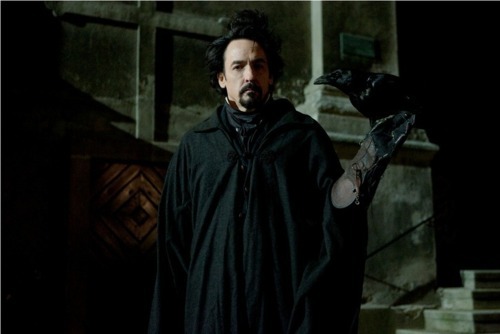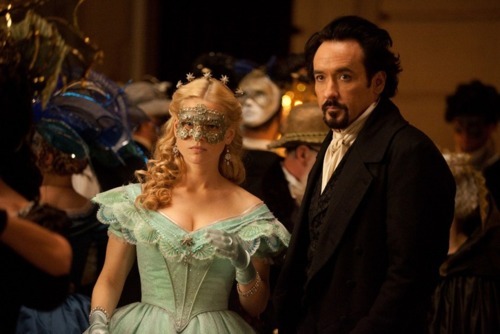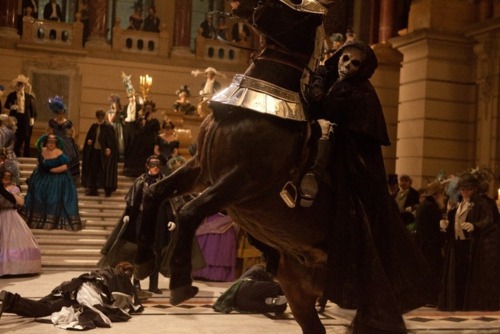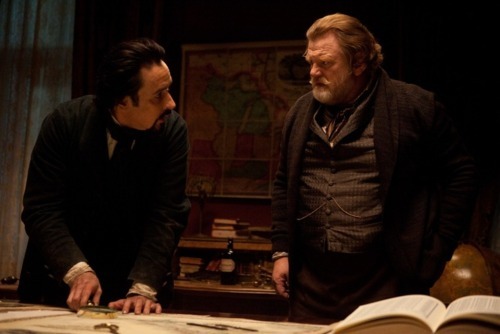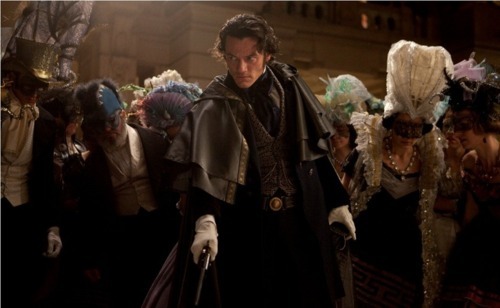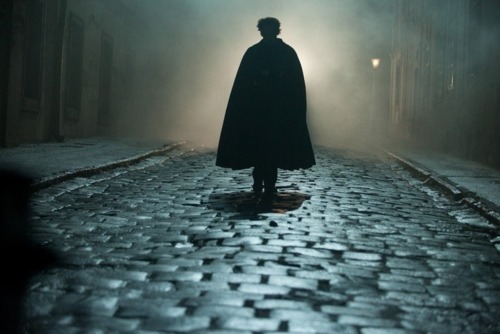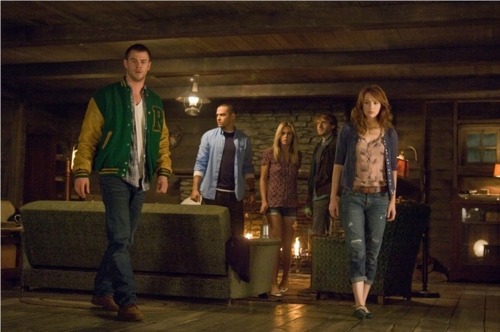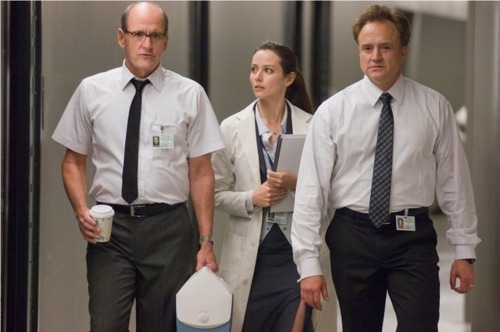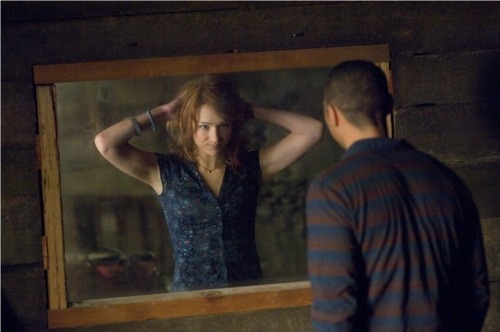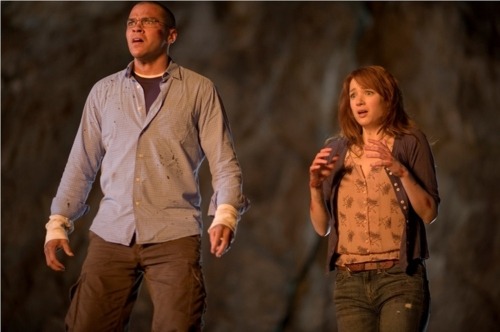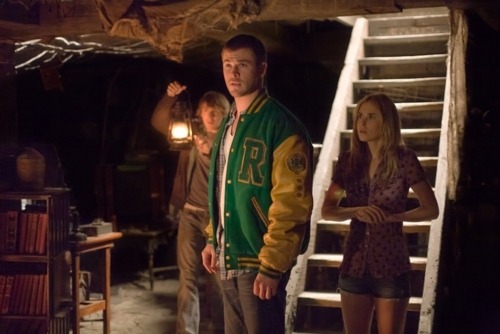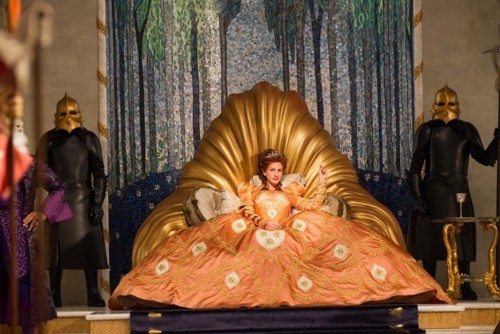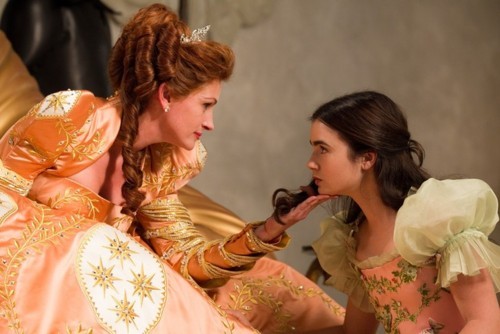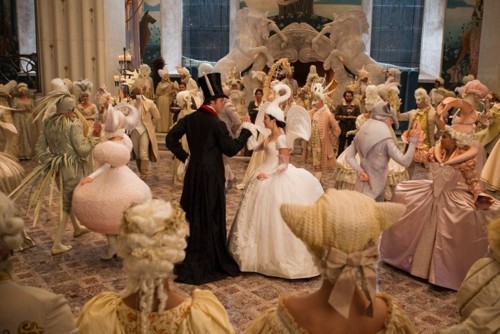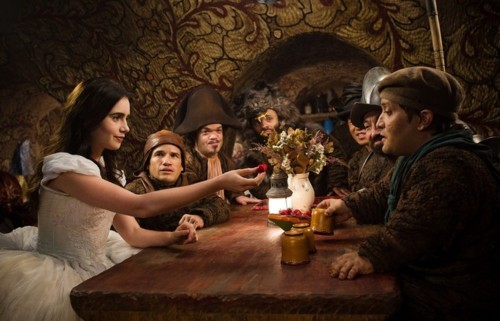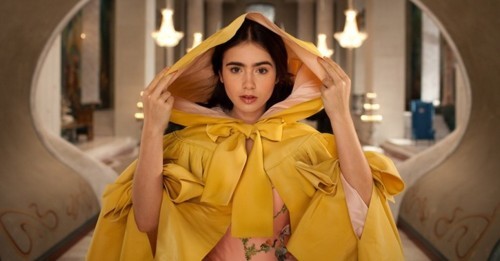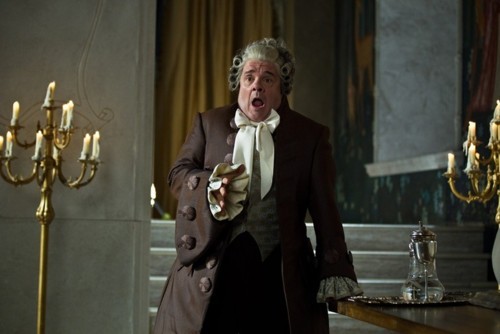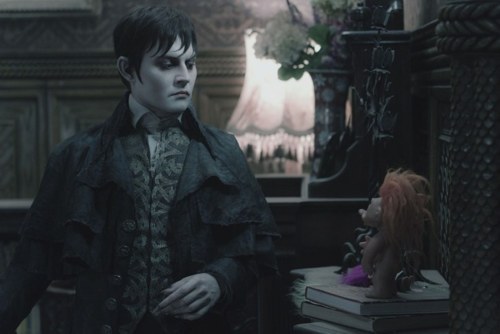
"Our family has always had the biggest and most wonderful balls."
If that line makes you giggle, you'll enjoy about 15% of Tim Burton's latest film, an adaptation of the classic gothic soap opera Dark Shadows. The other 85% of the film is a self-serious, maudlin bore, mired by unnecessary subplots and so many last-minute plot developments, it looks as if they cancelled a sequel halfway through shooting and tried to cram as much as possible into this film. Tim Burton lost his mojo a long time ago, and I'm sad to report, he's not regained it yet...

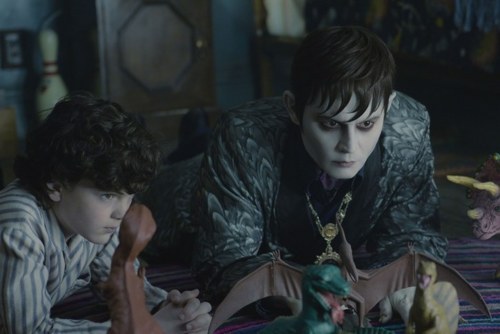
When the trailers first began showing up for this film a few months ago, I wondered who, exactly, the target audience for this film was. If the audience at my local theater today was any indication, it's middle aged couples who remember the 1966 television program, and a smattering of teenage girls who are there either to fawn over Johnny Depp or looking for confirmation that vampires sparkle in the sunlight (they didn't get the latter, if that's what they were there for).
The film opens with an entire film's worth of exposition and backstory crammed into a ten minute prologue that tells of how a young man named Barnabas Collins (Depp, as an adult) traveled with his family from Liverpool to America in 1752 to make their fortune in the fishing industry. A daughter of one of the family's servants, Angelique (Eva Green, as an adult) is smitten with the young Barnabas, and is appalled when her feelings are not mutual. Roundabout 1776, Barnabas falls in love with Josette (Bella Heathcote), which sends Angelique, who is also a witch, into a fury that finds her casting a spell on Josette which causes her to take her own life, and turning Barnabas into a vampire. When the townsfolk learn that Barnabas is a vampire, they bury him in the middle of the woods, where he lays in wait for the better part of two centuries.
Cut to 1972, the Collins family is in decline, having sold their fishing interests to a company called Angel Baby, run by the immortal Angelique, and a construction crew unearths the coffin Barnabas was buried in, awakening him and sending him into a murderous frenzy. Returning to his family's mansion to survey the state of the family, Barnabas is introduced to his heirs Elizabeth (Michelle Pfeiffer), her brother Roger (Jonny Lee Miller), her daughter Carolyn (Chloe Grace Moretz), and Roger's son David (Gulliver McGrath). Roger's wife died in a tragic accident three years earlier, and David has been unable to let go of his mother, claiming she's still alive, forcing the family to take on both a live-in psychiatrist Dr. Julia Hoffman (Helena Bonham Carter) and a governess, Victoria (also played by Bella Heathcote).
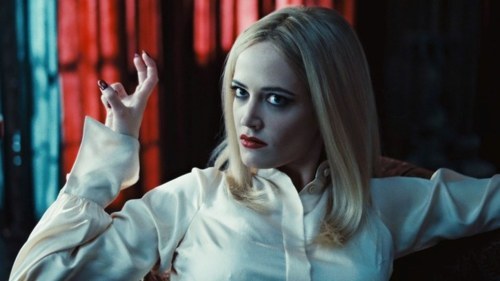
One thing I'll interject here is that the introduction of characters and plot is done with great alacrity. It's not as overwhelming as it seems reading about it (or writing about it for that matter). Barnabas sets out to restore his family and their industry to its former glory, revamping Collinwood Manor, and re-starting the fishing industry, putting him in direct competition with his mortal enemy Angelique. Of course, he becomes smitten with Victoria, who is the spitting image of his old love, and spends a good deal of time trying to woo her, in his antiquated way. Much of this portion of the film is very funny, with Depp excelling at playing the "fish out of water" trope for all it's worth. He casts a spell on the family's housekeeper Willie (Jackie Earle Haley) taking him as his own personal Renfield, and their interactions are quite funny.
Right around the one hour mark, the film starts to put the laughs on the back burner, and while the film doesn't drop its lightheartedness, it certainly wants the audience to think it's got more going on than some cheap laughs. Unfortunately it doesn't. Tonally, the film is all over the map, and even Depp becomes dour and joyless once he seems to have fully adjusted to the 1970s. One of Tim Burton's great gifts as a filmmaker has always been his ability to shine a spotlight on outsiders and imbue them with an empathy that endears them to the audience. Sadly, his attempt to do this with the character of Victoria feels cheap and shameful when we begin to get pieces of her backstory.
There are a lot of filmmakers who suffered a decline with the advent of certain technological advancements in cinema. One could argue that Chaplin's best days were behind him once sound came into play, or that Frank Capra never really entered the era of "color pictures." With the advent of cgi, Tim Burton's films have taken a precipitous drop in quality. His imagination knows no bounds anymore, and he can do anything he wants to. Gone are the days when films like Beetlejuice, Batman & Ed Wood left him confined to the realm of stop-motion animation and matte paintings. Gone too is the heart and soul of an auteur, who can simply click a button on a computer and have whatever he wants. By the time this film gets to its cgi-heavy climax, which features homages to no less than Hitchcock's Rebecca, Murnau's Nosferatu & even Zemeckis' Death Becomes Her, all the air has been let out of the balloon, and it feels like we're just going through the motions before the credits roll.
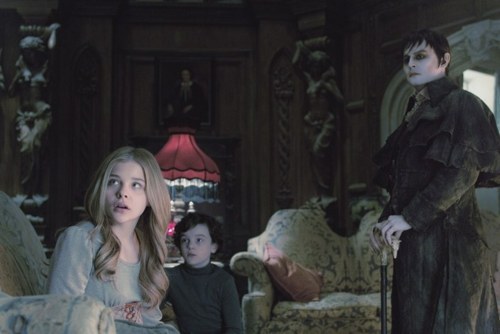
As I mentioned earlier, Depp is fantastic, and what little good I have to say about this film at all is mostly due to his presence. Much of the supporting cast is either wasted (Pfeiffer, Haley, & Moretz) or woefully miscast (Miller), leading to a dearth of characters worth caring about. Green makes a suitable villain, but when her evil deeds start piling on top of one another, and we find out about all the nefarious doings she's had a hand in (including turning a character into a werewolf as a baby for no good reason), it's just out of control. We should hate her because she stands in the way of the protagonist, not because she's done, literally, dozens of horrible things to everyone in his family. It's just bad plotting, and I hate to say it, but screenwriter Seth Grahame-Smith doesn't trust his audience enough to dislike the antagonist, so he adds in all kinds of nasty tidbits about her just to make sure we're happy when she gets her comeuppance.
The last thing I want to bring up is the awful, awful, awful use of music in the film. The soundtrack is populated with songs that almost force you to dwell on the lyrics while watching them. From the opening credits set to The Moody Blues' "Nights in White Satin," to Carolyn's playing Donovan's "Season of the Witch," during a dinner scene, to Curtis Mayfield's "Superfly" playing while Barnabas walks around downtown Collinsport for the first time in two centuries, it was just plain annoying. The one inspired use of music was The Carpenters' "Top of the World" during a montage, but I think that had more to do with it conjuring up memories of Todd Haynes' Superstar than it did my enjoyment of the scenes it played over. By the time Alice Cooper shows up for his cameo and lip-syncs two of his own songs, I was pretty much fed up with the soundtrack altogether.
I'm sure there are people out there who will enjoy the film, I just don't know who those people are. Even after surmising who the film's target audience was, I don't see any of them enjoying the film. The only reason I'm scoring the film as high as I am is because of Depp. He's endlessly watchable, no matter how bad the film around him is, and he always brings something new to the table, I just think maybe, just maybe, he and Burton need to take some time apart... try new things... see new people. It couldn't hurt.
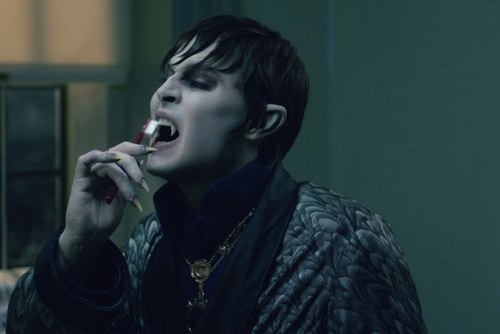
PopGO Rating: 1.5/5

[All picture via Box Office Mojo]



